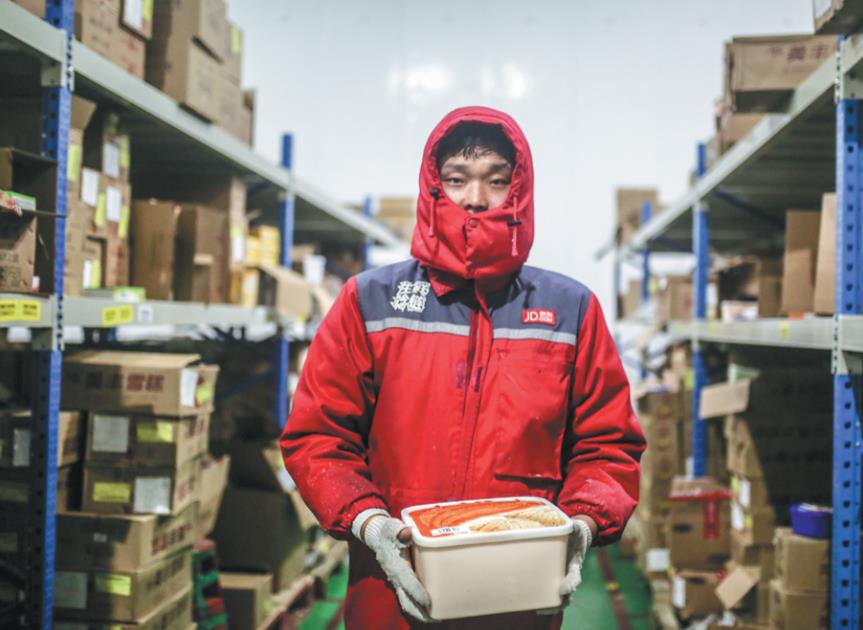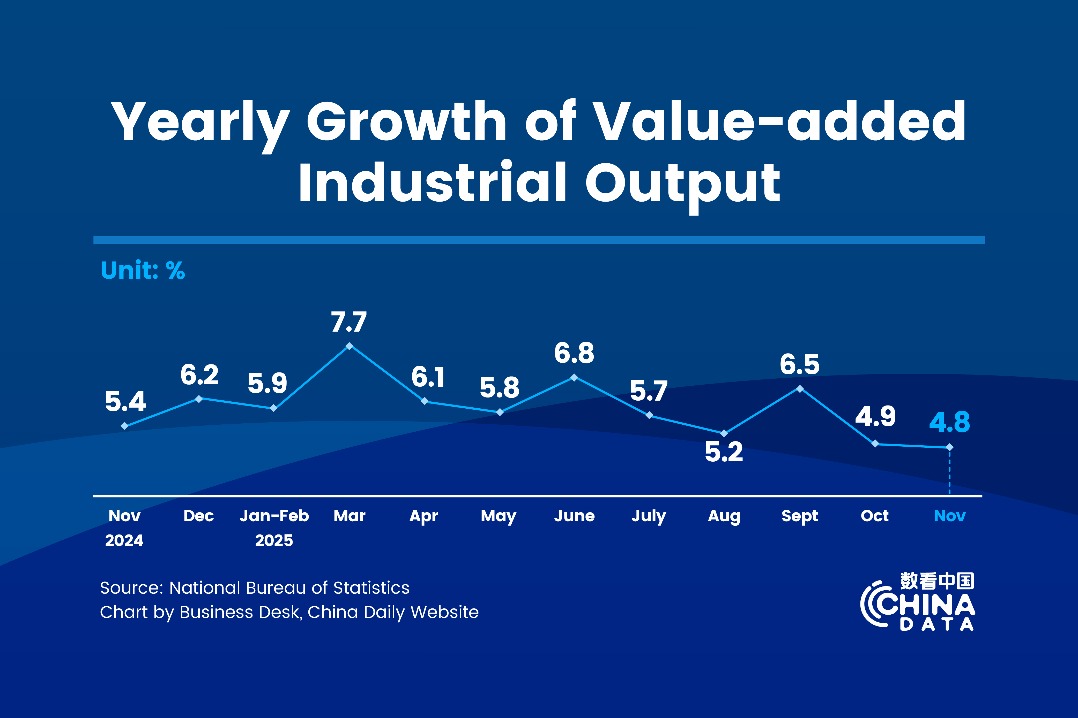Faster than express, greener, high-tech


Wang explained the whole supply chain service spanning procurement, production, circulation and consumption will be provided, and cutting-edge technologies such as 5G, artificial intelligence, big data and robotics are applied to establish technological standards for supply chain.
"Along with the rising e-commerce penetration rate in lower-tier cities, people in smaller cities and towns are looking for high-end quality products, which also propel the rapid growth of logistics in these areas," said Chen Tao, an analyst at the Beijing-based consultancy Analysys.
As of June 30, JD operated some 600 warehouses across the country, covering an aggregate gross floor area of over 15 million square meters. About 90 percent of the orders placed on JD can be delivered on the same day, or the day after the order is placed, according to the company.
In 2007, JD began to build its own logistics network. Since 2016, JD has expanded the range of logistics services and offered services to third-party merchants outside of JD. Its arm JD Logistics was established as a separate business group in 2017.
In October 2018, JD launched parcel delivery services for individuals in 17 cities including Beijing, Shanghai, Guangzhou and Shenzhen, and extended to over 100 cities as of August. In order to use the service, customers would ask for a pickup through the firm's app.
The company has been leading the utilization of automation technologies to solve the last-mile delivery problem, the costliest part of overall parcel delivery costs. It now operates 25"Asia No 1" logistics parks, which are among the largest and most automated smart fulfillment centers in the region.
It successfully used drones to deliver online purchases to rural shoppers in Jiangsu province in 2016. It has also carried out smart robot deliveries at several universities, such as the Renmin University of China, Tsinghua University and Zhejiang University. Each robot can carry up to five packages and make 10 to 20 deliveries per day.
China's logistics industry continued to post steady growth in the first nine months of this year. The total value of social logistics in the January-September period grew 5.7 percent year-on-year to 215.9 trillion yuan, according to the China Federation of Logistics and Purchasing.
In the first nine months, total logistics costs came in at 10.2 trillion yuan, up 7.5 percent year-on-year. Although the logistics sector is facing rising costs of operations, demand has maintained stable growth momentum and the industry remained in the expansionary territory, the federation said.
Wang Wei, director of the Market Economy Research Institute, which is part of the Development Research Center under the State Council, China's Cabinet, said the field of e-commerce logistics is peaking on the back of a continued rise in demand and improved efficiency.
Cainiao Network Technology, the nation's leading courier aggregator backed by internet giant Alibaba Group Holding Ltd, is trying to rewrite the rules of the multi-trillion-yuan logistics industry through digital makeovers. It has recently pledged to create 50 billion yuan in value for the country's logistics industry over the next three years, banking on technologies from the internet of things to artificial intelligence.
According to Wan Lin, Cainiao's president, the company aims to "connect 100 million smart devices with partnering couriers to digitalize and accelerate the entire delivery process".
Two central planks serving such goals include the setup of 100,000 pickup stations dubbed "Cainiao Post", and the construction of residential-area network nationwide over the same period of time.
"Such facilities can double as new access points for merchants to tap into prospective customers, given that 300 to 500 people are estimated to come to pick up parcels on a daily basis," Wan said.
Among the 50 billion parcels handled in China last year, some 30 billion used Cainiao's e-shipping label, which saves energy and provides simultaneous tracking functions, said Daniel Zhang, chairman and CEO of Alibaba.
"The sector is moving from pure digital-driven to intelligent tech-driven," Zhang said. He also pointed to the possibility of using emerging gadgets to revolutionize the delivery process.
Also in tandem with express delivery partners, Cainiao is looking to transport 1 billion new shipments per year through Cainiao Guoguo, an app that can send and track parcels.
According to Cainiao, its parcel pick-up services within two hours have covered 284 cities across the country, which means the company's logistics network has not only covered first-tier cities, but also third - and fourth-tier cities and even rural areas.
Last month, Cainiao began testing the waters for a 24-hour delivery service for users in 26 cities in the Yangtze River Delta region, which encompasses Shanghai and Zhejiang, Jiangsu and Anhui provinces.
The platform, together with leading express delivery firms like ZTO, STO and Yunda, promised to compensate consumers in these eastern Chinese cities if parcels are not delivered in a day.
Under the new policies, packages picked up by couriers before 8 pm are expected to reach consumers' doorstep within one day. Consumers can apply for compensation should a delay of 24 hours occur, and the order would be placed on a priority dispatch list, though details have not been published yet.
To make the industry "greener", the courier aggregator has also carried out a suite of action plans to achieve sustainable express delivery by 2020. In three years, Cainiao promised to replace all delivery sheets - covering over 40 billion parcels annually - into renewable ones, and promote the widespread adoption of electronic sheets. By using real-time monitoring and algorithm-backed analysis, Cainiao plans to reduce average travel time by 30 percent to effectively lower costs.
Moreover, Tmall, Alibaba's online marketplace for established brands, will upgrade all packaging materials into environmentally friendly ones by 2020, while business-to-customer service Taobao and secondhand market Xian Yu will adopt green bags in their on-demand services across 200 cities.
Jiao Zheng, vice-secretary-general of the China Express Association, said: "By the end of June, China had some 12,000 recycling points for disposed packages, and boasted about 20,000 new energy vehicles," adding that over 96 percent of express delivery orders are now placed through a paperless, electronic logging system.



































